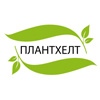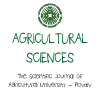Department of Plant Physiology, biochemistry and genetics
The Department of Plant Physiology existed as an independent one at the Agrarian University - Plovdiv until 2001. After that, it was united with the team of the discipline Biochemistry. From 2020 the department's academic staff is expanded with the division of Genetics from the Department of Genetics and Selection.
The team consists of 4 habilitated persons, five main assistants, one assistant, and three specialists. The head of the department is Professor Dr. Malgozhata Berova.
The department's staff participates in the preparation of bachelors and masters in the fields of Plant Breeding, Plant Protection, Natural Sciences, and Animal Husbandry. The department also conducts doctoral studies in Plant Physiology and Genetics.
The main disciplines taught by the members of the department are Plant Physiology, Plant Biochemistry, Animal Biochemistry, Enzymology, General Genetics, Plant Genetics, Molecular Genetics, Genetics and Selection, DNA Recombinant Technologies. The department's elective courses are Post-harvest physiology; Non-infectious plant diseases; Biochemical quality of plant production; Innovation and biotechnology; Legislation, analysis, and control of GMOs; Molecular genetic approaches in plant protection; Plant genetic resources as a source of pest resistance.
The department has a modern base and equipment, allowing a high level of the research process. The scientific interests of the members of the department are in the following areas:
- physiological and biochemical reaction of plants to various environmental stressors (drought, salinization, heavy metals, etc.);
- the possibilities for regulating the growth and development of plants in norm and stress;
- biochemical aspects of the quality of plant production;
- study of pesticide and herbicide residues in agricultural production;
- molecular markers (ISSR, SCAR, SNP for genetic diversity research);
- molecular identification of economically important pathogens in cultivated plants;
- marker-assisted selection of economically essential characteristics in cultivated plants;
- development of DNA prints in a field and perennial crops (cotton, tomatoes, wheat, vines, apples, etc.) to protect the copyrights of breeders and the interests of seed producers, producers of propagating material and consumers.
The department's staff carries out active international cooperation in teaching and research work with scientists from different countries. Permanent contacts have been established with colleagues from Belgium (Hasselt University, Free University-Brussels), Portugal (New Lisbon University), Russia (Timiryazev Agricultural Academy-Moscow, Novosibirsk National Agrarian University-Novosibirsk), Poland (West Pomeranian Technological University-Szczecin), Turkey (Aegean University-Izmir, Sabanci-Istanbul University, Namak Kemal-Tekirdag University), Moldova (Moldovan State Agrarian University Szczecin), Northern Macedonia (St. Kliment Ohridski-Skopje University), France (CIRAD, Montpellier, INRA), the Netherlands (Wageningen University), the International Atomic Energy Agency, China (Jiao Tong University - Shanghai), and others.
Head of Department

Professor Bojin Bojinov PhD
- Phone: +359 32 654 338
- E-mail: bojinov@au-plovdiv.bg
Members

Professor Malgozhata Berova PhD
- Phone: +359 32 654 408
- E-mail: m_berova@au-plovdiv.bg
Administration
Kiril Marinkov
- Phone: +359 32 654 463 +359 898 444 135
- E-mail: kmarinkov@au-plovdiv.bg
Hristina Hodzheva
- Phone: +359 32 654 421
- E-mail: hodzheva@au-plovdiv.bg
Snezhana Mladenova - Varadinova
- Phone: +359 32 654 411
- E-mail: snemladenova@abv.bg
 - Events on the occasion of the 80th anniversary of AU
- Events on the occasion of the 80th anniversary of AU



















